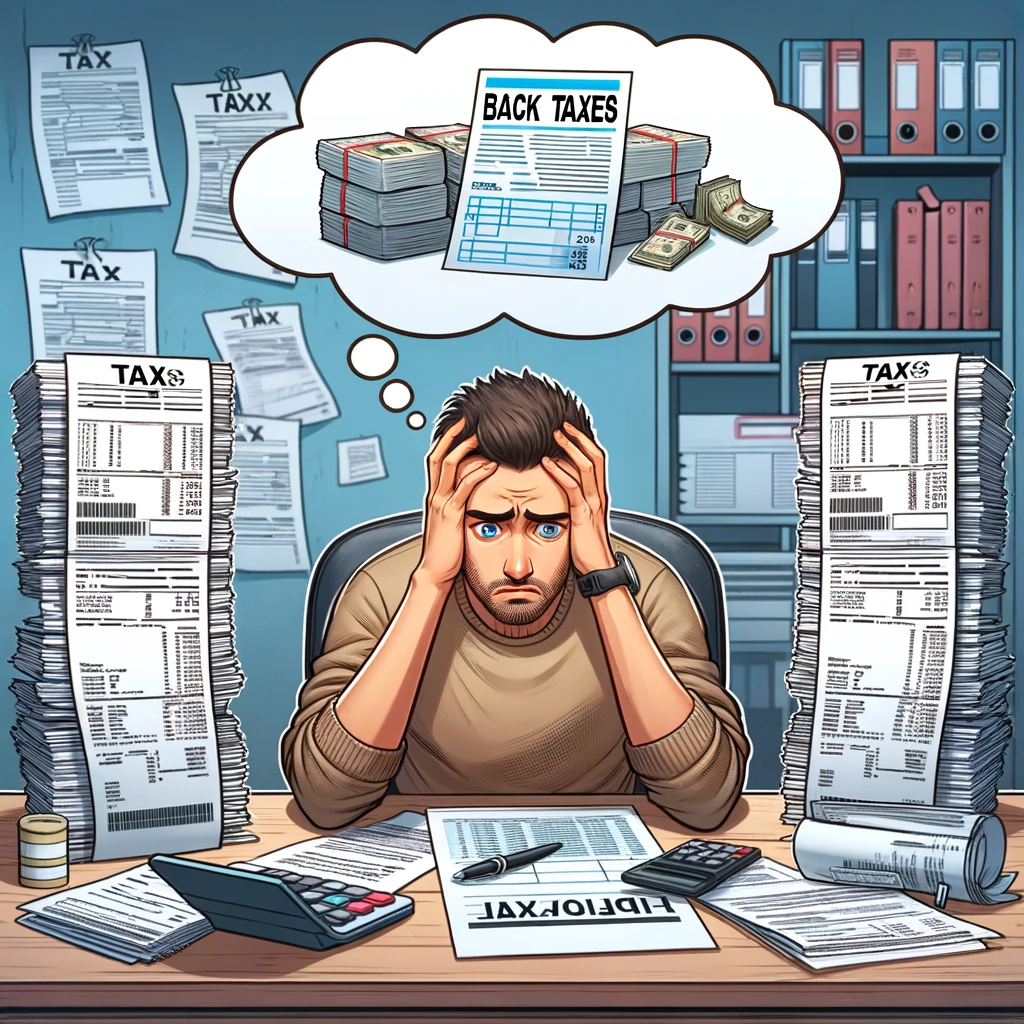Introduction: Dealing with IRS back taxes can be a challenging and overwhelming experience. Whether you’ve recently discovered an outstanding tax liability or have been dealing with it for some time, understanding the various aspects of the process is crucial. In this comprehensive guide, we’ll delve into the intricacies of handling IRS back taxes, exploring the reasons for back taxes, available solutions, and practical steps to navigate through this complex terrain.
Understanding Back Taxes:
- What are Back Taxes?
Back taxes refer to unpaid taxes from previous years. They accumulate when a taxpayer fails to file their tax return or neglects to pay the full amount owed. Interest and penalties accrue over time, creating a financial burden that can become increasingly challenging to address.
- Common Reasons for Back Taxes:
Several factors can contribute to the accumulation of back taxes, including financial hardships, changes in income, or simply neglecting to file. Understanding the root causes is essential for developing a strategy to address and resolve the issue.
Consequences of Unpaid Taxes:
- Interest and Penalties:
The IRS imposes interest and penalties on unpaid taxes, compounding the amount owed over time. Familiarizing yourself with the specific charges and how they accumulate is crucial to assess the overall financial impact.
- Liens and Levies:
If back taxes remain unresolved, the IRS may place a tax lien on your property or initiate a levy, seizing assets to satisfy the outstanding debt. Learning about the implications of these actions is vital for proactive management.
- Impact on Credit Score:
Unpaid taxes can negatively impact your credit score, affecting your ability to secure loans or credit in the future. Understanding the credit implications is essential for overall financial planning.
Addressing Back Taxes:
- File Delinquent Returns:
If you have unfiled tax returns, the first step is to complete and submit them. Filing delinquent returns helps establish a starting point for addressing back taxes.
- Negotiating a Payment Plan:
The IRS offers various payment plans, allowing taxpayers to settle their debt through manageable monthly installments. Exploring these options and understanding the requirements is crucial for choosing the most suitable plan.
- Offer in Compromise:
In certain circumstances, the IRS may accept an offer in compromise, allowing you to settle your tax debt for less than the total amount owed. However, qualifying for this option requires careful consideration of your financial situation.
- Seeking Professional Help:
Engaging the services of a tax professional, such as a certified public accountant (CPA) or tax attorney, can provide invaluable assistance. Professionals can navigate the complexities of tax law, negotiate with the IRS on your behalf, and ensure that you explore all available options.
Preventing Future Issues:
- Adjusting Withholding:
Reviewing and adjusting your withholding allowances can help prevent future tax issues. Ensuring that the correct amount is withheld from your income reduces the likelihood of owing substantial amounts at tax time.
- Regular Financial Check-ups:
Regular financial check-ups, including a review of income, expenses, and potential deductions, can help you stay on top of your tax obligations. Proactive financial management is key to avoiding surprises and preventing the recurrence of back taxes.
Conclusion:
Dealing with IRS back taxes requires a strategic and informed approach. By understanding the root causes, consequences, and available solutions, taxpayers can navigate through the challenges and work towards resolving their outstanding tax liabilities. Whether through negotiating payment plans, exploring offers in compromise, or seeking professional assistance, taking proactive steps is essential for achieving financial stability and peace of mind. Remember, facing back taxes may be daunting, but with the right knowledge and assistance, it’s a challenge that can be successfully addressed.



